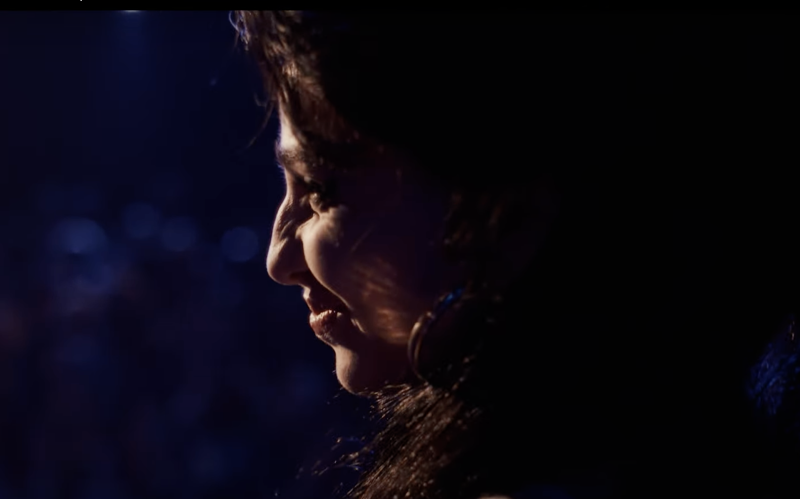Also problematic: the version of Mitch we get in Back to Black is the most placid, supportive, big-softy version of Amy’s father possible. The Winehouse estate approved this movie and — despite director Sam Taylor-Johnson’s assertions that the family did not dictate the content of the movie — you can’t help but wonder if its endorsement had an impact. Anyone who has watched Oscar-winning 2015 documentary Amy knows that the father-daughter dynamics in the Winehouse family were complicated and at times very uncomfortable. The version we get in Back to Black sometimes feels like little more than a Mitch Winehouse PR campaign.
The film does offer a few redeeming elements, starting with the relationship between Amy and her beloved grandmother Cynthia (Lesley Manville). The chemistry between Manville and Abela, while a little forced in their earliest scenes, winds up being the most arresting of the movie, and their pairing ultimately produces the most realistically heart-wrenching moments in Back to Black. If only the filmmakers had leaned further into this relationship, the viewer might actually have learned something new about Amy’s inner life, motivations and anxieties. (Even her lifelong struggle with bulimia is treated as an afterthought here.)
In the end, Back to Black feels like a movie for people who don’t actually care about Amy Winehouse. It frequently comes off like an animated rendition of the public perception of the singer that existed before the release of the Amy documentary.
That documentary gave her a multitude of layers beneath the exaggerated beehive and eyeliner. Back to Black seems to want to take us back to a simpler time, drawing only a brief overview of Amy’s key life events and recorded output, and offering existing fans little more than a bleak little trip down (far too recent) memory lane.
‘Back to Black’ is released nationwide on May 17, 2024.




